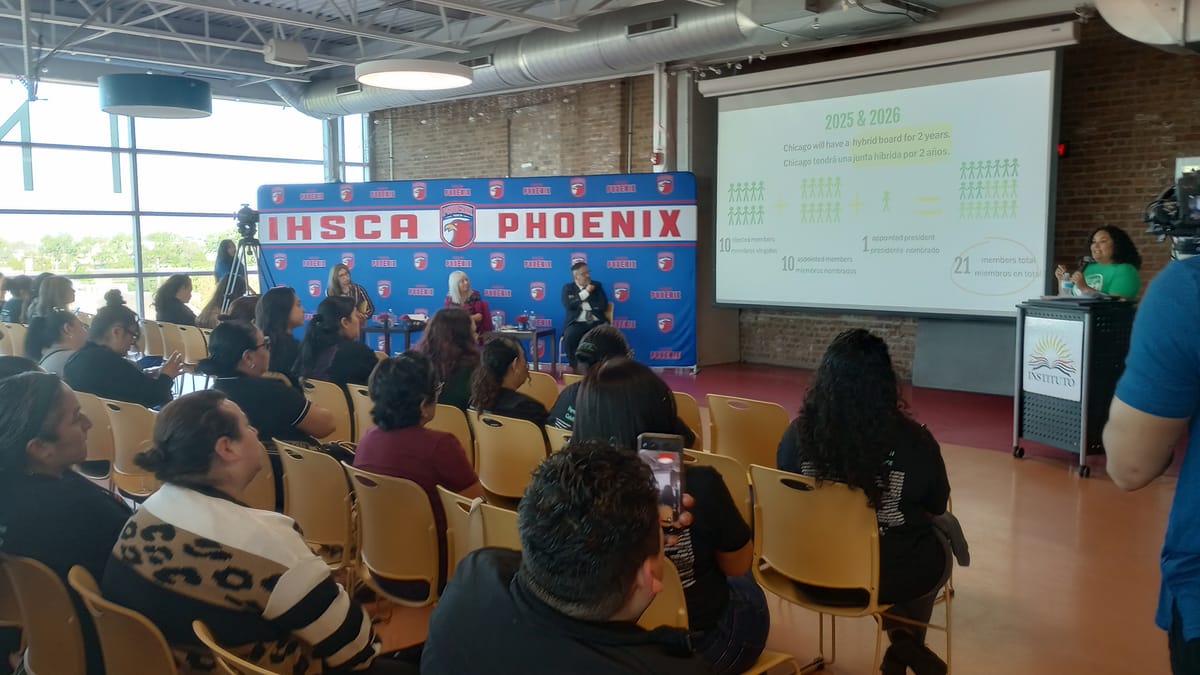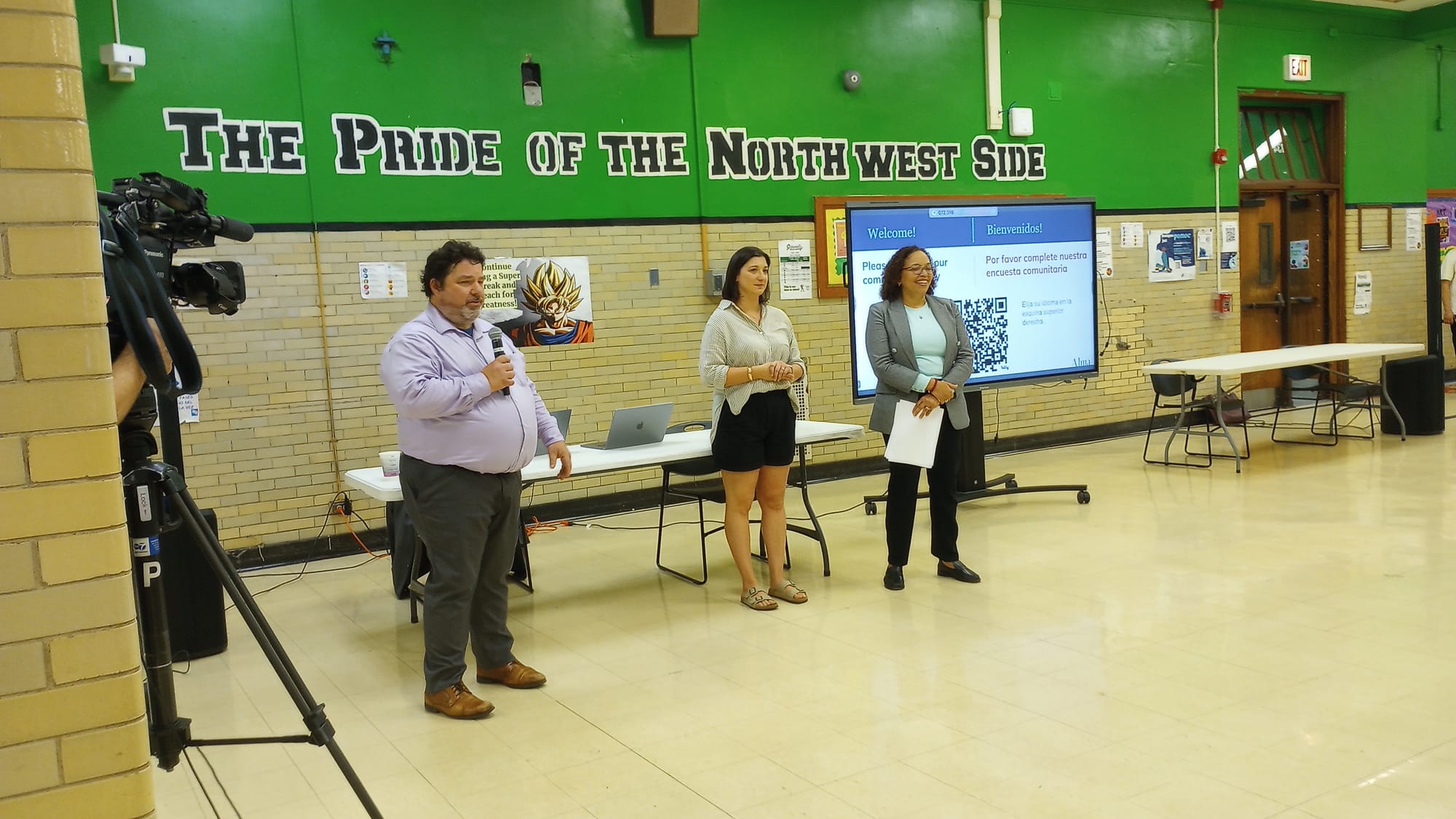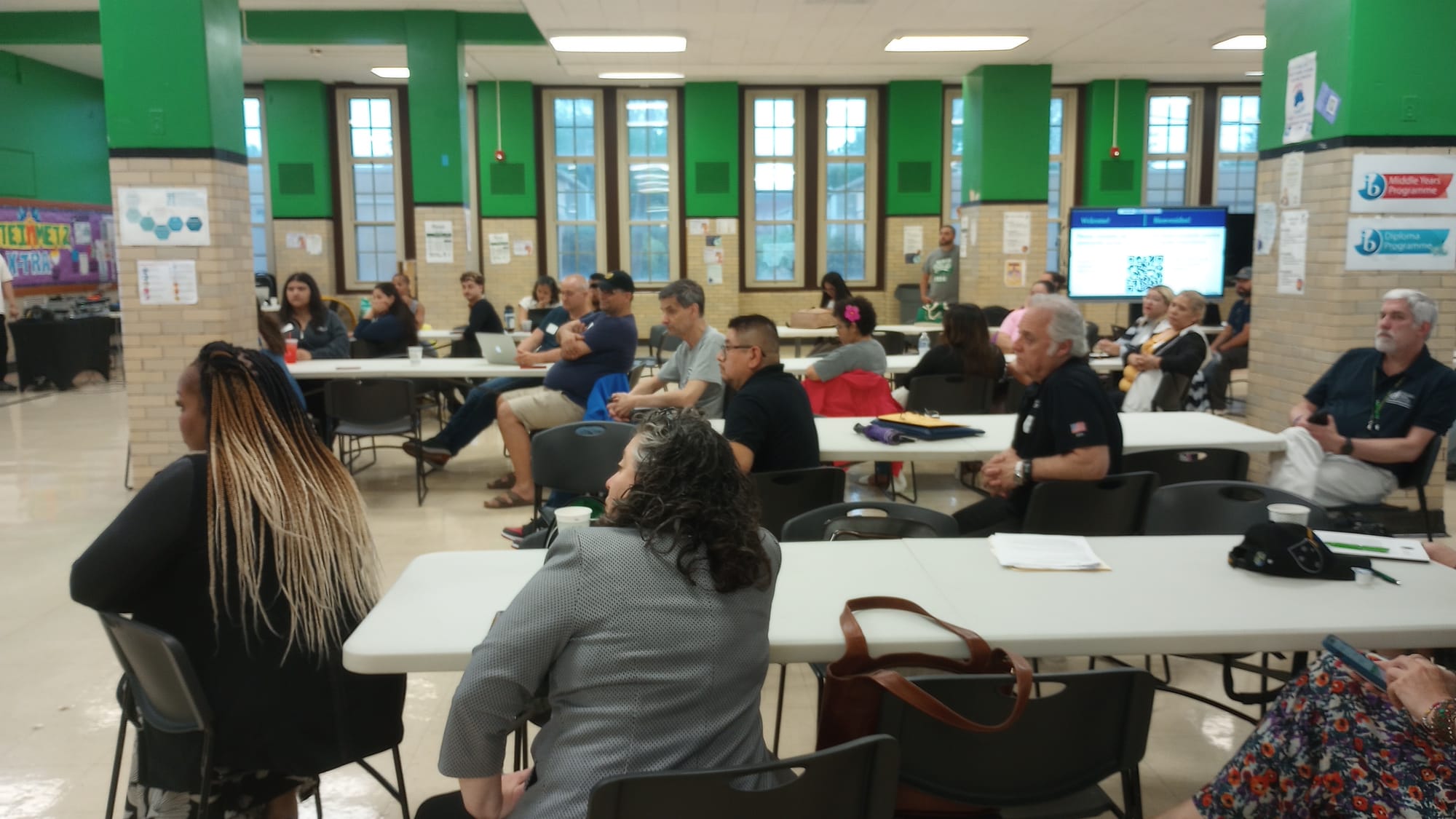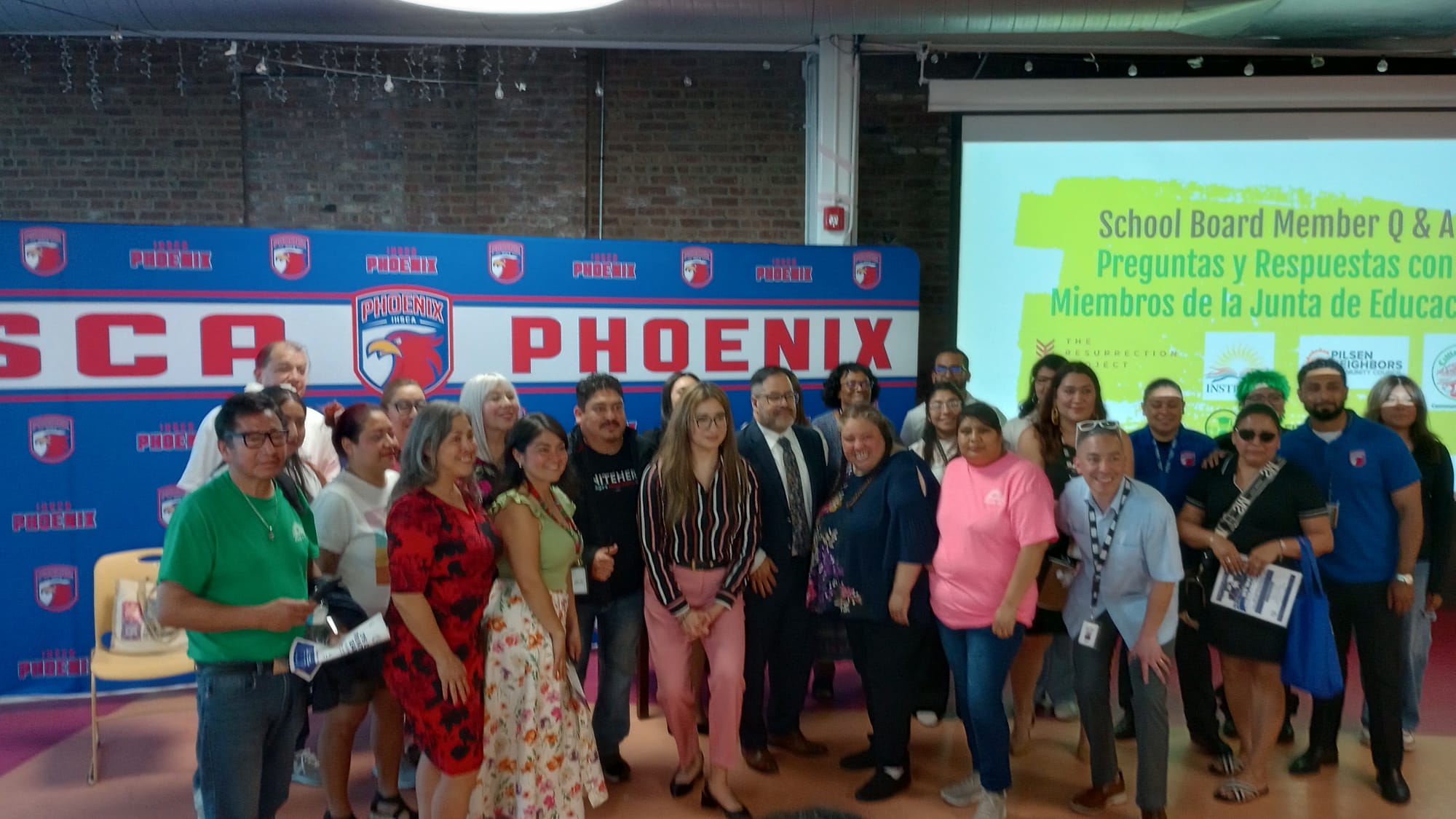CPS Lowballs Budget Deficit
Last week, the Chicago Public Schools released school-level budgets that paint a rosier financial situation than warranted. Principals and LSCs have two weeks to finalize budgets, but may have to re-do them in July.

Last week, the Chicago Public Schools released school-level budgets. Principals and Local School Council members now have two weeks to review the budgets, appeal for changes, allocate flexible funds, present their changes to network chiefs for approval, and hold a vote to approve their school's budget. It's a lot to do in a shorter time frame than usual.
Worse, the budgets schools received likely paint too rosy a picture of the district's overall finances. In a presentation to principals, the school district provided three possible budget scenarios, all with deficits. The smallest deficit projection offered was $229 million. School-level budgets were created based on this projection, which assumes the district will receive $300 million in new money for the school year 2026, either from the state or from the city's tax-increment finance (TIF) districts.
In his regular weekly email to parents, sent last Friday, CEO Pedro Martinez wrote, "I'm encouraging the Mayor, the City Council, and everyone invested in our schools to unite around a plan to use this existing TIF funding to close our budget gap this year, and a plan to reform the TIF program and provide our District with sustainable revenue for next school year and beyond."
But the presentation to principals also offered two other budget scenarios, one with a deficit of $529 million and another with a gap of $734 million. The presentation says these higher deficits would require laying off between 1600 and 3000 people currently working in schools. Plus, none of the budget scenarios accounted for the likely costs of the principal contract (still in negotiations), or the MEABF pension payment, which board president Sean Harden says he's committed to paying.
At last Thursday's agenda review committee meeting, the newly-released budgets prompted strong words from the Chicago Principals and Administrators Association. "We have been asked to build misleading budgets," said Kia Banks, the association's chief of staff. "In July, we will likely have to tell hardworking teachers and support personnel who left for the summer expecting to return to their jobs, that they've been cut."
Last year, CPS revamped the way it creates school budgets. It scrapped its decade-long practice of student-based budgeting in favor of an approach that targets funds toward the neediest schools, relying less on the number of students enrolled. The district used its Opportunity Index, first created in 2021, made public last year, and tweaked this year, to identify schools with the greatest needs and prioritize them for resources.
Even under the best-case overall budget scenario, some high-need schools are already seeing significant cuts. For example, from last year to this year, a north side high school jumped five points on the Opportunity Index, yet parents from the school who have seen the district-proposed budget say their school is losing tens of thousands of dollars in flexible funds and about half a dozen staff positions. (Board Rule is not naming the school or the parents because budgets are not yet finalized.)
Martinez's last day is June 18. His successor will likely be tasked with resolving this conundrum.
Official Super Search Convos Launch

Last week, the board held the first two of its 11 planned community conversations to gather input on what to look for in the next leader of CPS. At Steinmetz High School on Thursday night, the Sun-Times reported many attendees want a leader with deep ties to CPS, especially an alum. What I heard from folks I spoke with was a clear message that the board should stick to its resolve to hire someone with a superintendent's credential, not a CEO. The full schedule of meetings is here.
Questions have been raised as to whether attending these sessions is a waste of time if Mayor Brandon Johnson already has an interim picked out. It's important to remember that these conversations are the first public appearances many appointed board members are making in their communities as board members. Though these conversations don't put board members directly on the spot--they introduce the conversation and then sit in while focus groups tackle the big questions--they do allow parents and community members to talk informally with board members and make their opinions heard. For Chicago, which still lacks a fully elected school board accountable to voters, these conversations are a remarkable first opportunity.

About 50 people attended the Steinmetz discussion, including Ald. Nick Sposato (38). I'm told a state representative attended the District 8 meeting on Friday night. If local electeds think these conversations are worth attending, maybe they're on to something.
Kids First Chicago's meet-and-greet with board members Angel Gutierrez, Emma Lozano and Yesenia Lopez was a more direct opportunity to ask board members tough questions. About 100 people turned out last Wednesday night. When asked if they would change their vote and permit an interim school leader to take the wheel without a superintendent's license, board members Angel Gutierrez and Yesenia Lopez said no. Board member Emma Lopez did not answer the question directly.
Angel Gutierrez also told the crowd he understands charter schools need longer renewal cycles than the two years many are being offered. "We're working on some stuff," he said, but did not provide specifics.
Beyond grilling board members, the audience seized their opportunity to get up close with the board. After the formal discussion, the members were mobbed by parents and friends eager to take group photos and selfies.

Comments ()